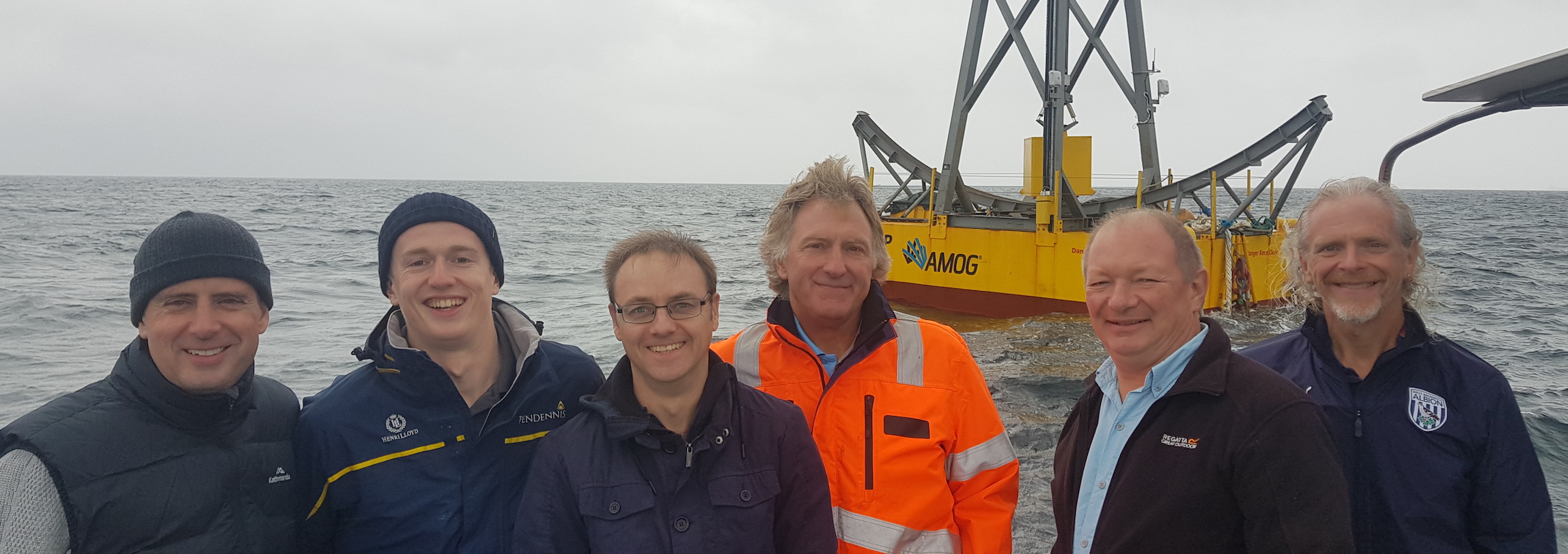
AMOG WEC Partners

European Regional Development Fund (ERDF)
- Marine-i on behalf of the European Regional Development Fund (ERDF) partnered with AMOG by providing grant funding to put in place Phase 2 testing of the WEC
- Marine-i, based in Cornwall, has a testing facility in an environment with a more consistent wave pattern. For marine testing, the infrastructure in Cornwall is highly developed and advanced, offering first class testing facilities that are already proven, together with an established supply chain in the marine technology sector

University of Exeter
- The University of Exeter provides Ocean Technology research support, including Research Fellows with electrical, mechanical, ocean science and technology research expertise
- In addition, the University of Exeter’s research capabilities include a range of field testing, hydrodynamic analysis and deployment expertise including the Falmouth Bay test site (Fab-Test) where AMOG is testing Phase 2 of the WEC

AMC at University of Tasmania
- AMOG used AMC’s model testing facilities to test 1:30 and 1:40 scale models of the concept during Phase 1. The results informed the next phase of testing and commercialisation of the technology.
- Physical modelling calibrated mooring loads predicted from numerical analysis as well as investigating extreme seas any propensity for greenwater over the deck

University of Plymouth
- The University of Plymouth COAST lab will support the AMOG WEC in performing larger scale model tests in their ocean basin. The Ocean Basin is 35m long by 15.5m wide with a moveable floor that allows different operating depths of up to 3m
- This basin can be used to create unidirectional and directional wave fields, regular waves, wave spectra and currents in three dimensions putting it at the forefront of testing for marine renewable energy arrays
- AMOG plan to utilize this model testing facility to provide a more detailed calibration of the WEC numerical models. In particular short-crested seas can be studied in this facility.
![]()

